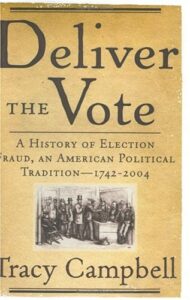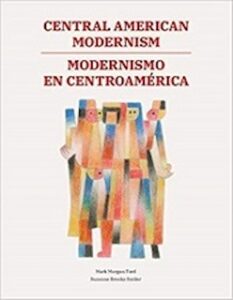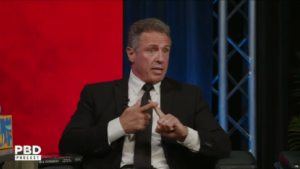Voter Fraud and Election Interference
Does It Happen? If So, How Often? And Does It Matter?
When Bush beat Gore in 2000 and the election was ultimately decided by the Supreme Court because of, among other things, the “hanging chads” issue in Florida, I saw it as negligence and incompetence (and an embarrassment to Florida), but I didn’t see it as malicious – as a story of purposeful manipulation and fraud.
The idea that election fraud could be a problem in American politics didn’t occur to me until 2016, when, after losing her bid for the presidency to Donald Trump, Hillary Clinton repeatedly and publicly claimed the election had been “stolen” from her through “Russian interference.” Everyone, including Trump, knows that “he’s an illegitimate president,” she said in her uniquely supercilious way.
I remember thinking, “Russian interference? Why would Putin prefer Trump over Clinton.”
Now I know why.
Trump was not big on war and saw no benefit (for him or the country) in the military industrial complex. Most of all, he had serious criticisms of NATO – the primary geopolitical enemy of Russia – whereas Clinton despised Putin and has supported all the proxy wars the US has had with Russia since she was elected to the US Senate in 2000. She was especially critical of him during her tenure as Secretary of State under Obama from 2009 to 2013.
(And by the way, this is probably why Trump claims, probably correctly, that the invasion of Ukraine “would not have happened” under his watch. It would not have happened because he would have assured Putin that, as long as he was in office, the US would oppose Ukraine’s admission as a NATO member.)
I believe Putin did prefer Trump. And although I have seen no convincing proof of it, I’m quite willing to believe that he did what he could to support Trump.
But what could Putin do?
The most common answers given by the liberal media at the time were about planting anti-Clinton and pro-Trump information on US social media.
To which I thought, “But any voter interested in following the election is already drowning in stories and misinformation for or against each candidate. What could the Russians put on the internet that hasn’t already been put out by conservative US political think tanks, election committees, and other activists in favor of Trump?”
In 2020, after losing his reelection bid to Joe Biden, Trump, like Clinton, claimed that he was the true winner of the contest. And, like Clinton, he claimed the election had been rigged – that if it hadn’t been, he would have been reelected. Liberal media outlets and voters were outraged, calling his claim a conspiracy theory and calling him and those that supported it “election deniers,” as if they had completely forgotten that Clinton had done the same thing just four years earlier.
To be accurate, Trump’s claim, which some conservative media promoted, was not actually a conspiracy theory, since he never suggested that there was a single person or authority controlling the fraud. Instead, he made at least a half-dozen specific accusations – ballot stuffing, rigged computers, mail-in voter fraud, and, in some cases, the outright manipulation of paper votes in blue voting jurisdictions.
Since Trump’s charges were more specific than Clinton’s had been, they were easier to investigate. And plenty of investigations were made, resulting in numerous books and documentaries that presented lots of video, audio, and other evidence about each accusation.
That said, neither Clinton’s nor Trump’s efforts to challenge the results of either election were ultimately successful. And although many liberals and conservatives continue to believe their candidates were robbed, none of the investigations that followed their claims found sufficient evidence to recommend or take legal action.
I was disturbed by all of the accusations, because they seemed not only embarrassing but also implausible. It didn’t seem realistic to me that in the 21st century – with the computer sophistication available to track and monitor not just every election center but every voting machine and drop-off box –voter fraud or election interference could be carried out at any serious level.
Side Note: In my research, I found a distinction between voter fraud and election interference. The first, according to the source I read, refers to individuals or groups casting multiple votes. The second denotes organized voting manipulation on a wide scale.
Clinton and the Democrats spent more than three years while Trump was in office attempting to impeach and oust him on the “Russia-gate” conspiracy theory because they could not come up with any verifiable evidence that any of the specific fraud/interference incidents had ever taken place. On the contrary, what their investigation unwittingly revealed was that the Clinton reelection campaign was behind what has become known as the “Steele dossier,” a report full of allegations of misconduct between Trump and Russia that has since been debunked.
As for Trump’s claims, they resulted in some pretty convincing (at least to me) evidence that some of them had meat on the bone. But none proved strong enough to get a win in court.
After thinking about it for a few weeks, I decided it was a good thing that neither Trump’s nor Clinton’s claims had been proven. Because, if one… or both… had been proven, what would that have done to Americans’ trust in the election system itself? Before long, the already exhausting political chasm between the right and left would deepen, as voters would come to believe that every election they were called to vote in would be rigged.
I decided that I had to believe that the vast majority of elections always were in the past, and always would be in the future, carried out honestly and fairly.
I wanted to believe that election interference and voter fraud were not just extremely rare but also minimal – too insignificant to change the legitimate outcome of any election.
To convince myself of this hoped-for belief, I did some research and found arguments in support of it. But I also found arguments against it.
Contrary to the claims of some, the problem of voter fraud is as old as the country itself. As the US Supreme Court noted when it upheld Indiana’s voter identification law, “flagrant examples” of voter fraud “have been documented throughout this Nation’s history by respected historians and journalists.”
And there are many kinds of voter fraud:
* Impersonation fraud at the polls. Voting in the name of other legitimate voters and voters who have died, moved away, or lost their right to vote because they are felons, but remain registered.
* False registrations. Voting under fraudulent voter registrations that either use a phony name and a real or fake address or claim residence in a particular jurisdiction where the registered voter does not actually live and is not entitled to vote.
* Duplicate voting. Registering in multiple locations and voting in the same election in more than one jurisdiction or state.
* Fraudulent use of absentee ballots. Requesting absentee ballots and voting without the knowledge of the actual voter. Or obtaining the absentee ballot from a voter and either filling it in directly and forging the voter’s signature or illegally telling the voter who to vote for.
* Buying votes. Paying voters to cast either an in-person or absentee ballot for a particular candidate.
* Illegal “assistance” at the polls. Forcing or intimidating voters – particularly the elderly, disabled, illiterate, and those for whom English is a second language – to vote for particular candidates while supposedly providing them with “assistance.”
* Ineligible voting. Illegal registration and voting by individuals who are not US citizens, are convicted felons, or are otherwise not eligible to vote.
* Altering the vote count. Changing the actual vote count either in a precinct or at the central location where votes are counted.
* Ballot petition fraud. Forging the signatures of registered voters on the ballot petitions that must be filed with election officials in some states for a candidate or issue to be listed on the official ballot.
Attempts to commandeer election results have been documented dating back to the 19th century, when New York City’s infamous Tammany Hall was synonymous with political corruption and election fraud. In one New York election (1844), 55,000 votes were recorded even though there were only 41,000 eligible voters. Decades later, these efforts have continued and determined fraudsters have become more creative in their efforts to fix the outcome of elections.
I found evidence that, on the state and local levels, both election interference and voter fraud have not just occurred more frequently than I had hoped, but that a significant percentage of cases resulted in convictions.
Here are some examples…
1982
An estimated 100,000 fraudulent ballots were cast in a 1982 Chicago election. After a Justice Department investigation, 63 individuals were convicted of voter fraud, including vote buying, impersonation fraud, fictitious voter registrations, phony absentee ballots, and voting by non-citizens.
1994
After an extensive investigation of absentee ballot fraud in a 1994 Greene County, AL, election, nine defendants pleaded guilty to voter fraud and two others were found guilty by a jury. The defendants included county commissioners, officials, and employees; a racing commissioner; a member of the Board of Education; a city councilman; and other community leaders. Among other things, the conspirators used an assembly line to mass produce forged absentee ballots meant to swing elections in favor of their preferred candidates.
2003
Allan “Twig” Simmons, an operative for the East Chicago, IN, mayor’s campaign, persuaded voters to let him fill out their absentee ballots in exchange for jobs. He pleaded guilty and was sentenced to three years of probation and 100 hours of community service. Fraud in the 2003 East Chicago mayoral primary was so widespread that the Indiana Supreme Court ultimately overturned the election results and ordered a special mayoral election that resulted in a different winner.
2004
Chad Staton, a worker associated with the NAACP National Voter Fund in Cuyahoga County, OH, pleaded guilty to 10 felony counts for filing false voter registrations during the 2004 presidential election in exchange for crack cocaine. Staton filled out more than 100 forms with names that included Mary Poppins, Michael Jackson, Michael Jordan, Dick Tracy, and George Lopez.
2008
ACORN workers in Seattle, WA, committed what the Secretary of State called, “the worst case of voter registration fraud in the history of the state of Washington.” The group submitted 1,762 fraudulent voter registration forms. The group’s leader, Clifton Mitchell, was convicted of false registrations and served nearly three months in jail. Four other ACORN workers on his team also received jail time, and ACORN was fined $25,000 to cover the cost of the investigation.
2010
Paul Schurick, former campaign manager to Maryland Gov. Robert Ehrlich, a Republican, was convicted of election fraud after approving a robocall to Black voters telling them not to vote because the Democrats had already won the 2010 gubernatorial election. A circuit court judge spared Schurick jail time, opting to sentence him to 30 days of home detention, four years of probation, and 500 hours of community service.
2012
While running for re-election, Martin, KY, Mayor Ruth Robinson and a cabal of co-conspirators targeted residents living in public housing and in properties Robinson owned, threatening to evict them if they did not sign absentee ballots that Robinson and her family had already filled out. Robinson also targeted disabled residents and offered to buy the votes of others. She was convicted and sentenced to 90 months of imprisonment.
2014
Rosa Maria Ortega, a non-citizen, was found guilty on two counts of voter fraud for voting in the November 2012 general election and the 2014 Republican primary runoff. Ortega claimed she thought she was a citizen, and blamed her lack of education for the mix-up. But prosecutors pointed out that she had previously indicated on a driver’s license application that she was a non-citizen. A judge sentenced her to eight years of imprisonment, after which she faced the possibility of deportation.
And it continues today.
Last month, for example, the former mayor of San Luis, AZ, pled guilty to ballot fraud and was subsequently sent to jail after she was videotaped illegally collecting and filling out ballots right outside of a polling place during the 2020 election cycle.
A federal jury in Sioux City, IA, convicted a woman of 26 counts of providing false information in registering and voting, three counts of fraudulent registration, and 23 counts of fraudulent voting.
Here’s another one… a very recent conviction in California (which seems to lead the country in voter fraud convictions).
And here is a study saying that since the 2000s, there have been thousands of accusations of election fraud in state and local elections and hundreds of convictions. And the frequency is increasing each year.
Still with me?
If so, here’s a book you might want to read:

Summary: From ballot stuffing and intimidating voters to buying votes, suppressing turnout, and manipulating returns, Deliver the Vote is an intensive examination into the hidden interiors of American politics that casts a provocative new light on how power in America is often obtained. Drawing on hundreds of elections from the colonial era to the 2004 election, historian Tracy Campbell reveals how a longstanding culture of corruption is alive and well in local, state, and national elections. Among those whose stories are central to this book are Boss Tweed, William Randolph Hearst, Huey Long, Harry Truman, Lyndon Johnson, and Jimmy Carter, as well as countless local and state politicians of every stripe. Combining social and political history in a vivid narrative, Deliver the Vote reveals how fraud has been a persistent and corrosive presence in American history, and is not confined to one party, location, or time period.







